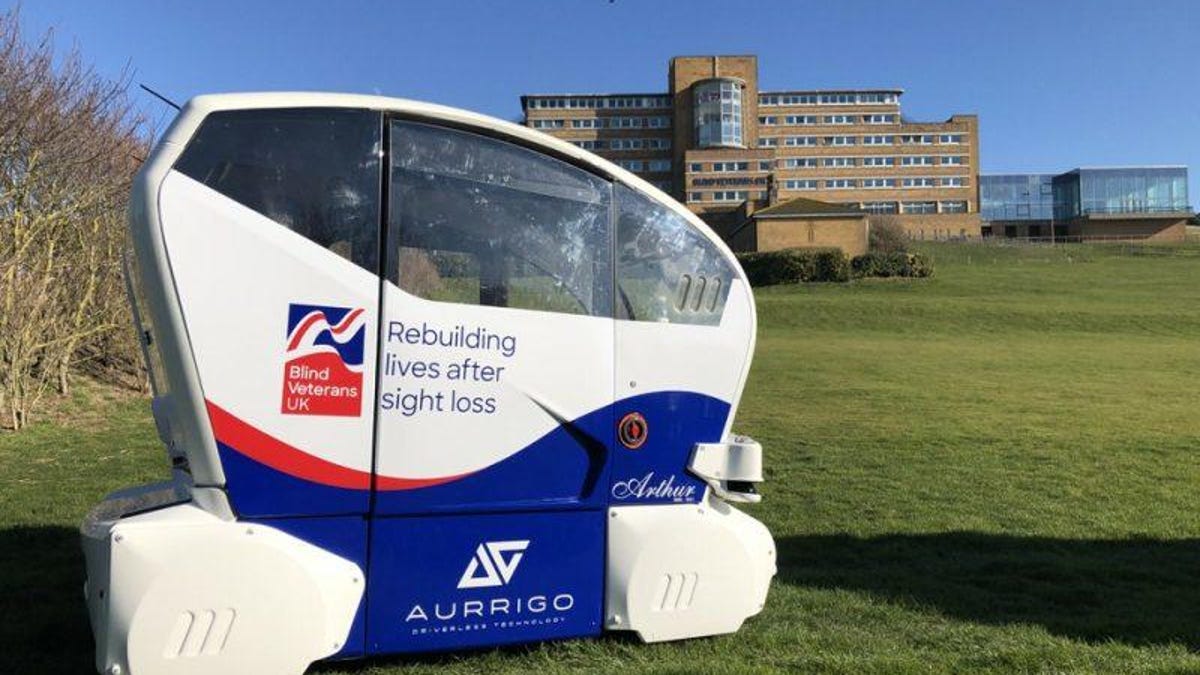Autonomous car beta test will first benefit the blind
UK autonomous mobility company Aurrigo is set to begin its testing program for visually impaired riders in April.
As autonomous mobility inches closer to widespread use and garners more headlines along the way, it's easy to dream of a life of convenience. But it's even easier for folks to forget that there is a whole subset of people for whom self-driving car tech will be more than mere convenience, it will change their lives -- the disabled community.
One of autonomy's biggest selling points for the public is its potential to reduce the number of vehicle accidents and fatalities worldwide significantly. But in addition to the convenience possibilities and life-saving potential, UK autonomous mobility company Aurrigo is demonstrating how driverless pods can revolutionize the lives of blind people.
Beginning in April, The Telegraph reports, Aurrigo will roll out a six-month beta test in collaboration with Blind Veterans UK that will provide driverless pods that will ferry visually impaired veterans around the charity's rehabilitation campus at a blistering 15 mph.
The beta test will allow Aurrigo to assess how blind riders interact with voice controls to improve the company's future driverless cars, which use GPS and ultrasonic sensors to navigate the world.
"So many of the blind veterans we support say that not being able to drive is one of the most significant things that hits you when you lose your sight," said retired Maj. Gen. Nick Caplin, chief executive of Blind Veterans UK.


